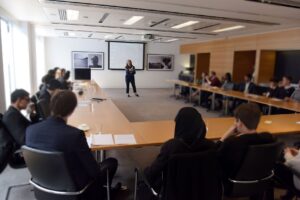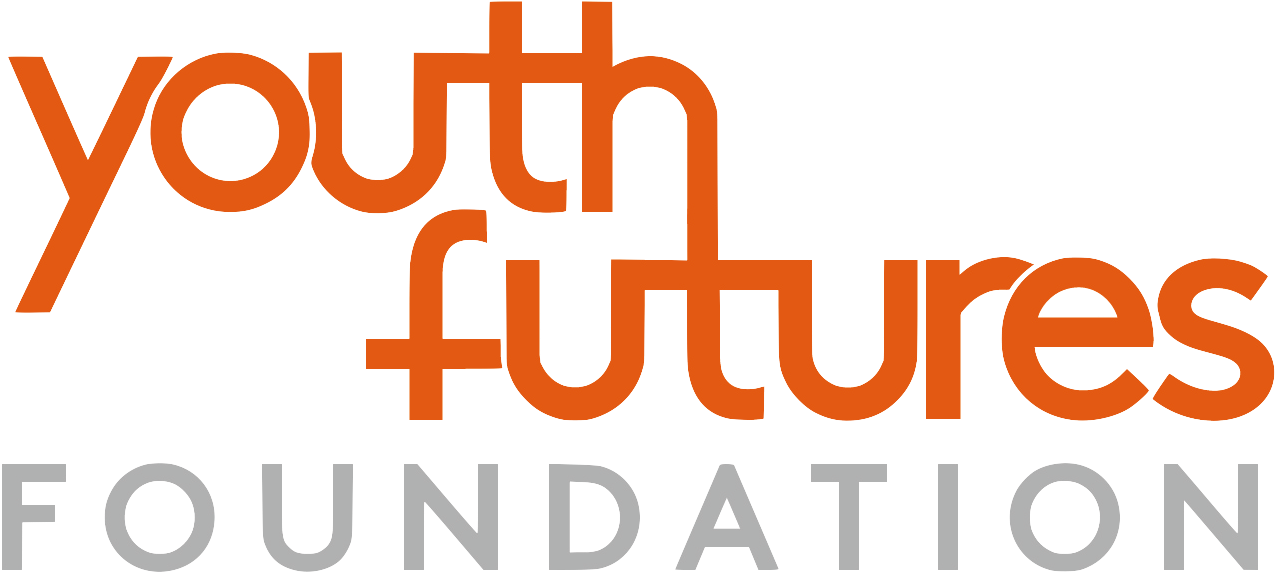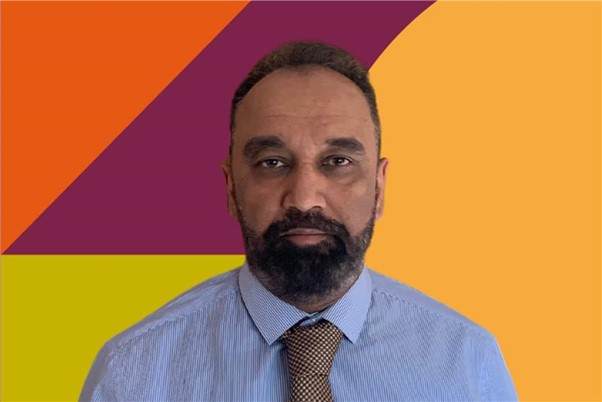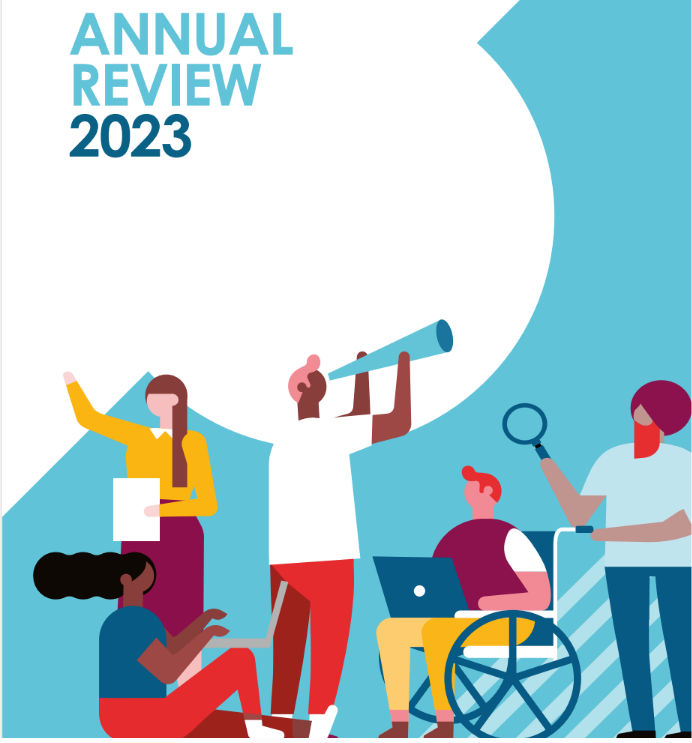We catch up with Sug Sahadevan, Chair of a charity that helps raise the aspirations and social mobility of young people and one of our grant-holders. A successful tech entrepreneur, Sug is founder and managing director of Testhouse, a global software firm.
Organisation: 15billionebp
Location: Newham, London
Grant type: Development grant worth £191,300 over two years to support 90 young people from ethnic minority backgrounds at risk of not entering employment, education or training.
Tell us about how and why you became involved in 15billionebp?
I understand Newham. I grew up nearby, so I’ve been on a similar journey to the young people we’re here to support. I moved to London from Singapore with my parents when I was seven years old. We were the first of our family to live in the UK. I was not studious and was at serious risk of making bad decisions about what to do with my life. My career adviser at the time wasn’t particularly helpful either.
It took a very honest conversation with my cousins in India to make me realise the opportunities I could take, that weren’t open to them. That really changed my outlook.
I decided to take a different path and went to Northern Ireland to study Electronics Engineering. It’s a place that couldn’t be more different to East London. I loved the different pace of life and getting to know new people. It was a transition point in my life.
Fast forward a few years, I’m running my own successful IT company and I wanted to offer work experience opportunities to young people from similar backgrounds to myself. That led to my joining an initiative to link local businesses to education, leading to chairing 15billionebp for the last 13 years. I feel passionate about the people and the area.
How does 15billionebp help young people from ethnic minority backgrounds into work?
So many different ethnic minority communities live in Newham. Like me, a lot of the young people we work with are the children of first–generation immigrants. One of the disadvantages they face is not being able to tap into an extended family to get guidance about career opportunities. Networks are vital to help get a job. We open up networks, joining the dots between primary school, secondary school, work readiness and local businesses.

We also believe that raising aspirations should start early and be revisited throughout a young person’s life. We do this through our flagship programmes at a primary and secondary level.
A few years ago, we set up the East London Children’s University. We were delighted that UCL became its Higher Education sponsor. It’s a great way to introduce children and their parents to new experiences. Visiting inspirational sites to see Rolls-Royce engines, universities and museums bring to life the opportunities in London. It fires their imagination and gets them thinking about careers. The children love getting their passport stamped at all the sites, and then graduating in prestigious locations like UCL wearing their immaculate graduation robes!
Last year our World of Work (WOW) programme helped over 20,000 primary age children and their teachers to connect the national curriculum to future careers. With the help of hundreds of businesses and volunteers, we made work come alive with visits to workplaces and inspirational activities.
What is the 15billionebp approach?

Taking a holistic approach, we bring together all the people in a young person’s life: parents, teachers and other professionals. This means their immediate network understands and supports the young person’s goal and we can adjust the process as we go.
We’re innovative and adapt to the needs of our young people and partners. I am delighted that our work has been recognised by Youth Futures and others.
Recently the Careers and Enterprise Company and the Education Endowment Fund agreed to fund large-scale evaluation pilots, to collect data and analyse our impact at a primary school level. The GLA and the European Social Fund (ESF)are also supporting our work.
I’m also particularly proud that because of the work of 15billionebp, every year an average of 4,000 young people undertake work placements with small businesses.
What are the challenges of running an organisation like 15billionebp?
Funding is the major challenge. Three years ago, we changed our mode of operation completely. Public sector grants stopped. We looked to the private sector for support. If the government is serious about tackling rising youth unemployment – and it is much worse for young Black and Asian people – we need more support.
There are many more young people out of work in Newham because of the pandemic. When Covid-19 struck, we switched everything online. Young people now do work experience virtually. It is a time of uncertainty and it’s not clear how our working lives will be after the pandemic.
To tackle ethnic disparities in employment, there needs to be a joined-up approach. This means putting measures in place to improve the outcomes of ethnic minority students throughout their education, and into the workplace. Top colleges and universities need to increase participation and access. Employers need to continue to promote diversity, inclusion and equal opportunities; address inequality in pay and promotions, and offer opportunities in under-represented sectors.
The experience of young people today is different to when I grew up. Racism was much more ‘in your face’, now it’s more sporadic. While at university, I applied to three times more vacancies than my contemporaries, before I got an interview. I think the challenge now is that working-class ethnic minority young people are staying within their own groups, culture, and economic status. This makes it more difficult for them to build up confidence without the right support.
What do you really enjoy about the work?
I enjoy working for 15billionebp because I love to see the positive impact on local people and the area. I’m proud of the commitment of the team and the Board. We’re all about helping young people, who face more challenges, make good choices and get into the job market.
We are supporting 15billionebp with a Development grant that will help identify what works and provide evidence for how new approaches can be scaled up to help boost youth employment. Find out more about how we are investing in potential here.


